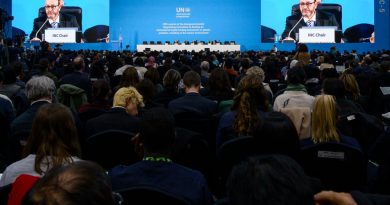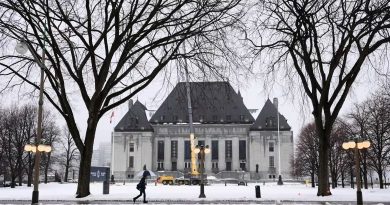$200M legacy fund for day school survivors now open for applications

The McLean Legacy Fund is for survivor-led initiatives for collective healing, wellness, language, culture, commemoration, and truth telling.
“We’ve been waiting for this day,” said Kitigan Zibi Anishinabeg First Nation elder Claudette Commanda, who is CEO of the McLean Day Schools Settlement Corporation.
“It’s very promising. There’s finally something there for us. Let’s take advantage of what is there for us to build what our communities, what our survivors [need],” she said.
The corporation’s board will consider funding submissions received between now and the end of September, with funds expected to flow by January 2026, according to the settlement fund website.
Only survivor applicant groups or communities can request funding. They are outlined in Schedule K of the settlement, which lists recognized federal day schools.
Canada ran 29 day schools in the N.W.T., 30 in Nunavut, and 13 in Yukon, according to that list.
Individual survivors and groups of individuals are not eligible for funding alone, the fund’s website states.
The legacy fund is part of the larger $1.47-billion class action settlement, and is distinct from the individual compensation money, said Commanda. The first round of submissions are open for survivor committees and for community programs and projects, the settlement states.
Communities can apply to support existing programs they already run, such as men’s healing lodges and language preservation.
There is money to hire healers and mental support workers, especially for commemoration programming, she said.
“Survivor communities, they know what’s needed and they’re in the best position to develop whatever program and services are needed to meet those needs of wellness, language, truth telling [and] commemoration,” she said.
‘Justice for day school survivors’
The legacy fund is named in honour of the late Garry McLean, from Lake Manitoba First Nation, the lead plaintiff representing hundreds of thousands of survivors in the Federal Indian Day Schools Class Action case.
McLean advocated for justice and healing for survivors of day school institutions where abuse was “rampant,” said Commanda.
She said he “spearheaded the justice for day school survivors” who were excluded from the residential school negotiations.

“Regardless of the fact that the Indian Day Schools were on reserve and we went home each night to our families, it was still the same objective — assimilation, the loss of language and culture,” said Commanda.
Students at these institutions were not allowed to speak their language and not allowed to know anything about their culture and identity, she said.
Communities can apply for up to $25,000 to establish a survivor committee. Establishing one is not mandatory, but encouraged to ensure programming is survivor-led, she said.
The fund is split among four areas:
- Healing and wellness, with up to $250,000 per year, for one to four years.
- Language and culture, with up to $100,000 per year, for one to four years.
- Commemoration, with up to $100,000 for one-time only funding that can be split over four years.
- Truth-telling, with up to $100,000 for one-time only funding that can be split over four years.
Collective healing is important, said Commanda, noting that survivors of day schools may also be survivors of multiple “devastating federal policies,” including residential school, the child welfare system, boarding schools, and segregated hospitals.
“Regardless of what policy that we fell under or that we’ve experienced, there’s still that trauma and our communities have to heal, period. Survivors, you’re not alone,” she said.
Related stories from around the North:
Canada: Pope Francis finishes Canadian visit in Nunavut, CBC News
Finland: Truth and Reconciliation Commission should continue says Sami Parliament in Finland, Eye on the Arctic
Norway: Can cross-border cooperation help decolonize Sami-language education, Eye on the Arctic
Greenland: Greenland, Denmark initiate investigation into past relations, Eye on the Arctic
Sweden: Sami in Sweden start work on structure of Truth and Reconciliation Commission, Eye on the Arctic
United States: U.S. Interior Secretary listens to Indian boarding school survivors on Alaska stop, Eye on the Arctic



